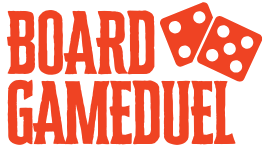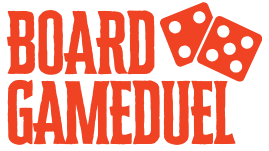Cooperative board games are designed to be inclusive, engaging, and collaborative experiences that bring players together in pursuit of a shared objective. Whether you’re curing diseases in Pandemic, escaping a collapsing temple in Forbidden Desert, or strategizing your way through the depths of space in The Crew, the magic of co-op gaming lies in the unity it fosters among participants.
However, for all their benefits, co-op games are not without their challenges—and one of the most disruptive is the infamous “Alpha Player” Syndrome.
Also referred to as “quarterbacking,” the alpha player problem arises when one dominant individual takes control of the game, dictating other players’ moves, offering unsolicited advice, and effectively turning a group activity into a solo performance with supporting actors. It may stem from enthusiasm or a desire to help, but the result is often frustration, disengagement, and diminished enjoyment for others at the table.
In this article, we’ll unpack what causes alpha player syndrome, how it affects the gaming experience, and most importantly—how to prevent and overcome it. Whether you’re the host of game night, a new player, or even someone who’s been accused of “taking over,” there’s something here for you.
What Is the Alpha Player Problem?

The “alpha player” is typically the most experienced, confident, or vocal person in a co-op game group who takes on the role of leader—often to a fault. They may:
- Make decisions for other players
- Give unsolicited strategic advice
- Micromanage group actions
- Dominate discussions or dismiss alternative ideas
- Act as the “final say” in choices
While guidance can sometimes be welcome—especially from someone familiar with the game—alpha behavior often results in others feeling sidelined, unchallenged, or disempowered. It contradicts the spirit of collaborative gameplay and turns what should be an equal-footing team experience into a one-person show.
Why It Happens
Understanding the root causes of alpha player syndrome is key to addressing it. Here are a few common reasons:
1. Experience Disparity
Veteran gamers often naturally take the lead when playing with less experienced individuals. While their intention may be to help, it can cross the line into controlling behavior.
2. Game Design
Some cooperative games are more prone to quarterbacking, especially those with perfect or open information (like Pandemic), where everyone can see all available actions and resources.

3. Personalities and Group Dynamics
Some people are natural leaders or problem-solvers. In group settings, these traits can manifest as dominance, especially when no clear group norms are established.
4. Fear of Failure
When players feel the group is close to losing, a more assertive player may take over to “save” the game, inadvertently shutting others out in the process.
Why It’s a Problem

The alpha player syndrome can sour the experience for everyone involved—even the alpha. Here’s why it’s harmful:
- Reduces Engagement: Players who aren’t making their own decisions feel less invested in the game.
- Stifles Learning: New or shy players don’t get the chance to understand game mechanics or strategy on their own.
- Creates Tension: It can lead to resentment or discomfort within the group.
- Erodes Replay Value: A game feels less dynamic when one person dictates the flow.
- Undermines the Point of Co-op Games: The core appeal of these games is shared problem-solving—alpha behavior breaks that down.
How to Prevent and Overcome Alpha Player Syndrome
Thankfully, there are proactive strategies—from table etiquette to game design choices—that can curb alpha behavior and promote a more inclusive play environment.
1. Choose the Right Games
Some co-op games are specifically designed to limit alpha tendencies. Consider games with:
- Hidden or Asymmetric Information: Where each player has private knowledge or unique abilities (The Crew, Mysterium, Hanabi).
- Real-Time Play: These prevent long decision-making pauses and reduce the opportunity for domination (5-Minute Dungeon, Magic Maze).
- Simultaneous Turns: These reduce downtime and keep everyone engaged.
- Role-Specific Knowledge or Actions: If players must act independently or use unique powers (Spirit Island, Gloomhaven), it becomes harder for one person to control the entire game.
2. Set the Tone Before the Game
A brief discussion before starting can do wonders:
- Remind the group that it’s okay to make mistakes—it’s part of the learning and fun.
- Encourage everyone to voice their ideas and take ownership of their turns.
- Emphasize that the goal is shared enjoyment, not perfect strategy.
3. Create Turn Structure with Discussion Limits
Establish boundaries for how much cross-talk is allowed during someone’s turn. For example:
- “Let’s each suggest one idea and let the active player decide.”
- “Only offer advice if it’s asked for.”
- “Let’s avoid discussing exact moves unless the player is unsure.”
This ensures everyone has space to make decisions.
4. Rotate the “Team Leader” Role
Assign a rotating leadership token or role each round. This player can help guide discussion but doesn’t override final decisions. It creates balance and encourages quieter players to step into leadership roles temporarily.

5. Use House Rules When Necessary
Don’t be afraid to gently tweak rules to create a better group dynamic. For example:
- Introduce “fog of war” by having players keep some resources or cards hidden.
- Implement a “no advice unless asked” rule.
Tailor the game environment to match your group’s needs and personalities.
6. Encourage Reflective Play
After a session, have a light debrief. Ask:
- “What did you enjoy most?”
- “Did everyone feel involved?”
- “Is there anything we could do differently next time?”
This helps surface concerns constructively and improves future sessions.
7. Address Alpha Behavior Diplomatically
If someone consistently dominates, it’s important to address it with care. Here’s how:
- Speak privately and positively: “Hey, I noticed you often take charge during the game. I really appreciate your passion, but I think others might want to make more decisions too. Could we find a way to balance that out?”
- Emphasize that their input is valued, but so is group collaboration.
- Redirect during play: “Great suggestion! Let’s hear what [other player] is thinking before we decide.”
8. If You’re the Alpha Player…
Being self-aware is half the battle. If you suspect you might be the one taking over, try:
- Asking instead of telling: “Would you like a suggestion?”
- Holding back to let others speak first.
- Embracing imperfect moves—sometimes it’s more fun to watch others learn than to guide everything yourself.
Remember: the game is about us, not you vs. the board.
Also Read: Latest Cooperative Game Releases to Watch in 2025
Making Co-op Games Truly Cooperative
Cooperative games are a fantastic tool for building connection, encouraging teamwork, and creating memorable shared stories. But they work best when everyone feels included, respected, and empowered. The alpha player syndrome can disrupt that delicate balance—but with the right mindset, tools, and game choices, it’s a completely solvable challenge.
The next time you gather around the table, remember: it’s not about who has the best strategy—it’s about who helps create the best experience for the whole group. Teamwork isn’t just a path to victory. It is the victory.










